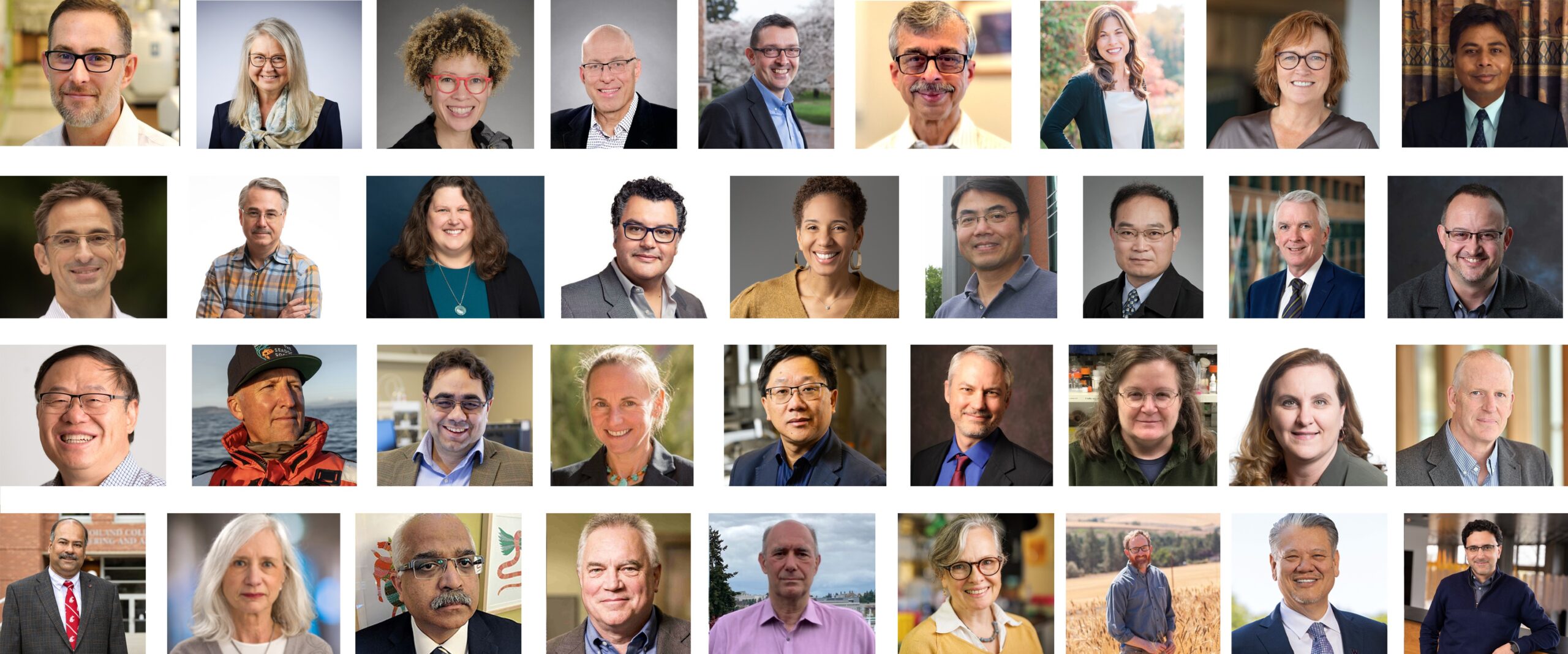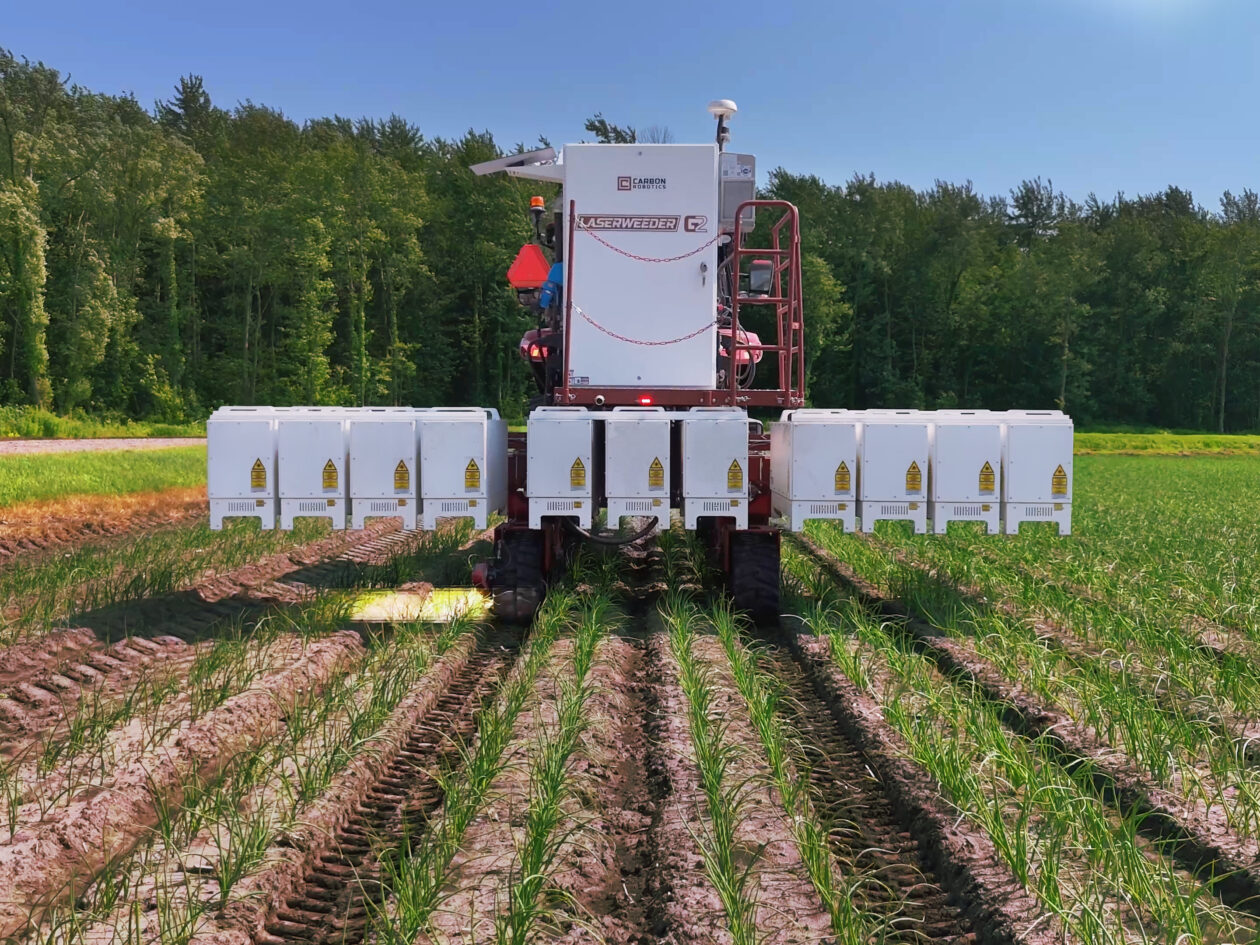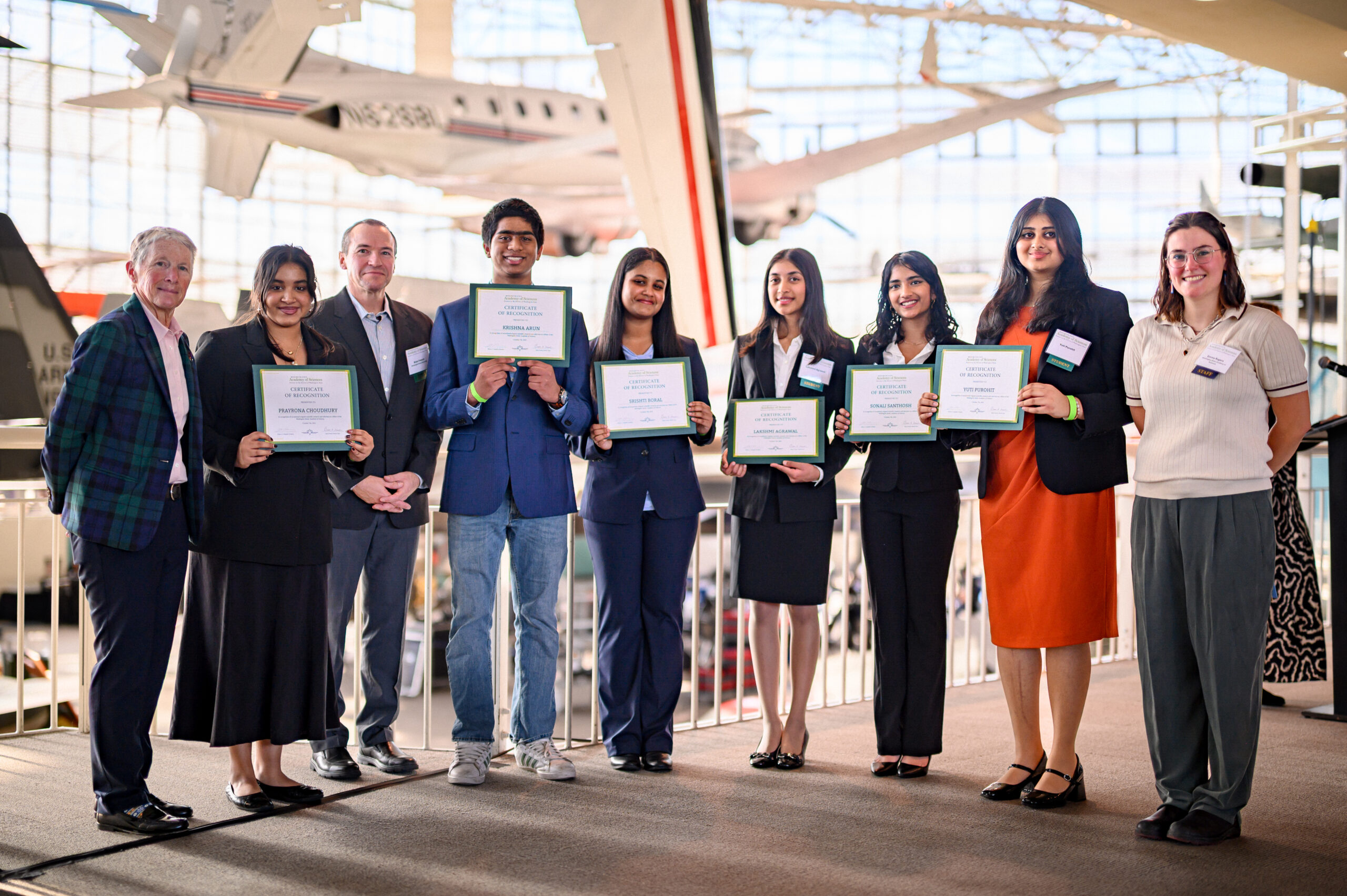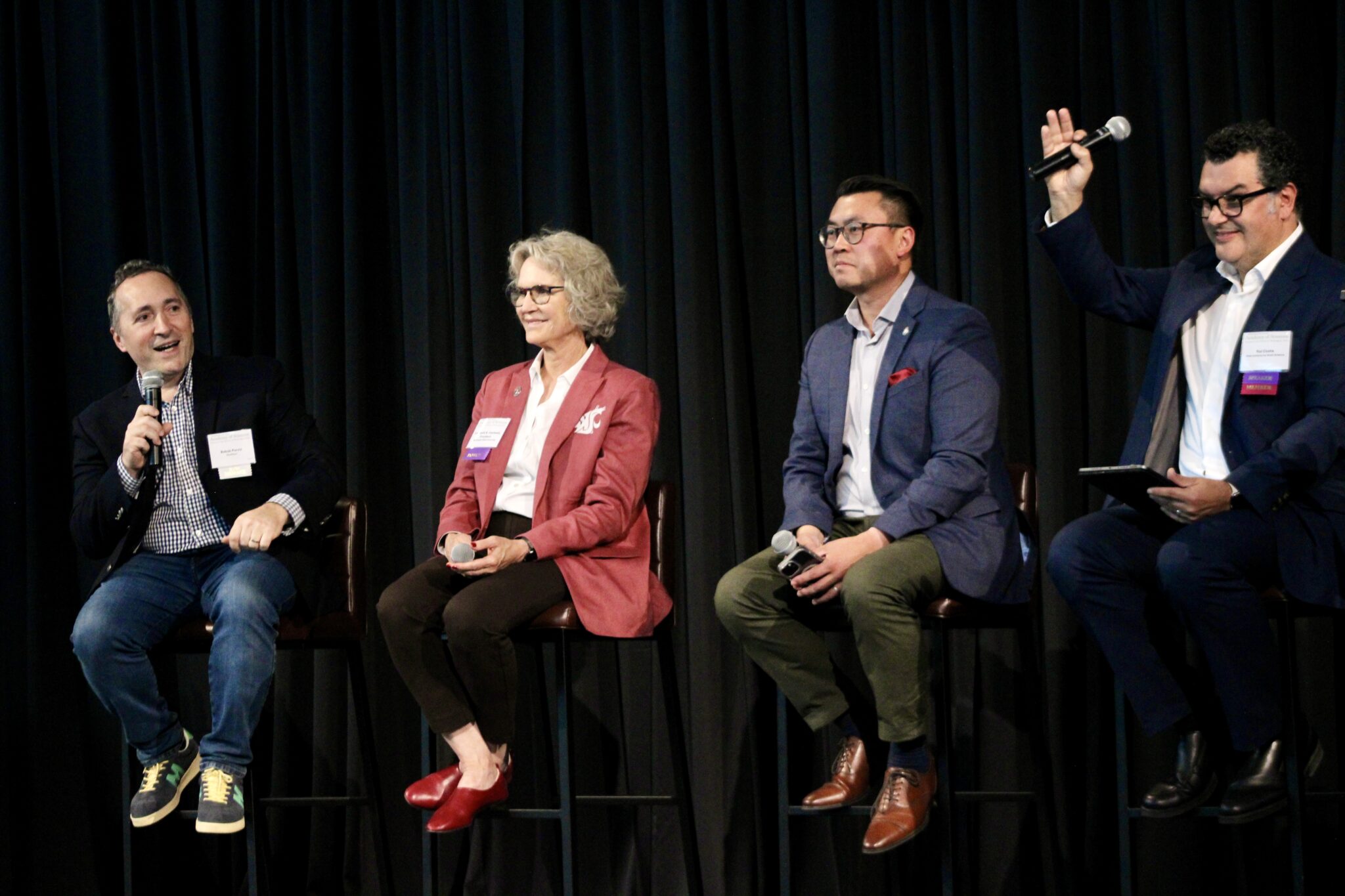
SEATTLE, WA – The Washington State Academy of Sciences (WSAS) has elected 36 new members in recognition of their outstanding record of scientific and technical achievement, and their willingness to work on behalf of the Academy to bring the best available science to bear on issues within the state of Washington.
“We are thrilled to honor these scientists, engineers, and leaders in the public, non-profit and private sectors for their distinguished and continued achievements,” said John Roll, WSAS President and professor at Washington State University. “We look forward to tapping their expertise and knowledge to advance the Academy’s mission of science in the service of Washington State.”
The 2024 class of new members is composed of 30 scientists and engineers elected by their WSAS peers and 6 members recently elected to the National Academies of Science, Engineering, or Medicine, who live or work in Washington State. The new class hails from academic institutions, national labs, industry and nonprofit organizations. These new members bring diverse expertise and experience to WSAS.
New members will be inducted at the Annual Members’ Dinner following the 17th Annual WSAS Symposium at the Museum of Flight in Seattle, Washington on September 25, 2024.
Individuals directly elected by WSAS membership
Garnet Anderson, Senior Vice President and Director, Public Health Sciences Division, Fred Hutchinson Cancer Center
Dr. Anderson is recognized for the significant impact her work has had on public health research and policy. Notable achievements include her leadership in the Women’s Health Initiative, advancing understanding of women’s health, and her contributions to statistical methodology, facilitating evidence-based decision-making.
Wendy Barrington, Associate Professor and Director, Child Family and Population Health Nursing, Epidemiology, Health Systems and Population Health, University of Washington
Dr. Barrington possesses the rare combination of scientific rigor and courageous commitment to local community health. Identifying original ways to examine questions, and seeking out appropriate scientific methods to study those questions allow her to translate research to collaborative community interventions with a direct impact on the health of communities.
Philip Bell, Professor of Education, Shauna C. Larson Chair of Learning Sciences, College of Education, Learning Science & Human Development, University of Washington
Dr. Bell is recognized for his work in the cultural basis of scientific research and learning, bringing rigor and light to multiculturalism in science and STEM education through STEM Teaching Tools and other programs.
Kimberly Christen, Associate Vice President, Research Advancement, Office of Research, Washington State University
Dr. Christen has changed the way the field of information sciences understands information ethics by aligning it with a reparative theoretical framework based in Indigenous relations to kin, territories, material belongings and systems of knowledge in order to unsettle standard academic practices of authorship, attribution, and accountability.
Katherine Comtois, Professor, Department of Psychiatry and Behavioral Sciences, University of Washington
Dr. Comtois is recognized for her sustained commitment to community-engaged, science driven practice and policy change related to the prevention of suicide and the promotion of mental health, with a focus on providing effective, sustainable, and culturally appropriate care to people with serious mental illness.
Valerie Daggett, David and Nancy Auth Endowed Professor of Bioengineering, University of Washington
Dr. Daggett has charted new paths for 30+ years. Her quest to deeply understand protein folding/unfolding and the link to amyloid diseases has propelled her to pioneer unique computational and experimental methods leading to the discovery and characterization of a new protein structure linked to toxicity early in amyloidogenesis.
Min Du, Regents Professor, Department of Animal Sciences, Washington State University
Dr. Du is recognized for research in maternal nutrition and fetal programming which opened new areas of discovery in genetics and nutrition and which lead to effective treatments and applications in human health and food production.
Prashanta Dutta, Professor and Director of NSF NRT-LEAD Program, School of Mechanical and Materials Engineering, Washington State University
Dr. Dutta is recognized for distinguished contributions in theoretical and computational modeling of thermal, mechanical, electrochemical, and biological systems as well as nationwide dissemination efforts of hands-on learning pedagogy to diverse students in institutions ranging from public, private, R1, to 4-year programs, including 6 minority-serving institutions.
Manuel Garcia-Perez, Professor and Chair, Biological Systems Engineering, Washington State University
Dr. Garcia-Perez is recognized for his leadership in sustainable agriculture systems and bio-energy research. His creative research advances our understanding of complex thermochemical reactions so that they can be controlled to obtain green products (bio-oils, biochar, SAF) to combat global warming and provide environmental services.
Maria Gartstein, Professor and Chair, Department of Psychology, Washington State University
Dr. Gartstein’s career is marked by leadership/service contributions, with international reach of research and translational efforts engaging the public and policy makers. Her work addressing the biological and contextual underpinnings of temperament has influenced broader impacts, including theoretical and methodological shifts in the discipline, and awareness of support for self-regulation in the community.
Joseph Gaydos, Wildlife Veterinarian and Science Director, SeaDoc Society, Karen C. Drayer Wildlife Health Center, UC Davis School of Veterinary Medicine – Orcas Island Office
Dr. Gaydos is recognized for foundational research on integrating medical intervention, individual health assessment and conservation actions to improve recovery of endangered species and the resilience of marine ecosystems, as well as translating the science of Puget Sound for improved ecosystem-based management and public understanding of the ecology and value of the Salish Sea to human well-being.
Jeremy Hess, Professor, Departments of Emergency Medicine, Environmental and Occupational Health Sciences, and Global Health, University of Washington
Dr. Hess is a global and national leader at the intersection of climate change and health, whose work has advanced our understanding of climate change health effects and has informed the design of preparedness and disaster response planning in Washington state, nationally, and globally.
Paul Kinahan, Professor of Radiology and Bioengineering, Vice-Chair of Research, Department of Radiology, University of Washington
Dr. Kinahan is recognized for his contributions to the science and engineering of medical imaging systems and for leadership in national programs and professional and scientific societies advancing the capabilities of medical imaging.
Daniel Kirschen, Donald W. and Ruth Mary Close Professor, Department of Electrical and Computer Engineering, University of Washington
Dr. Kirschen is recognized for his distinguished research contributions to the design and operation of economical, reliable, and environmentally sustainable power systems, and the development of influential educational materials used to train the next generation of power engineers.
Thomas Lynch, President and Director, Raisbeck Endowed Chair, Fred Hutchinson Cancer Center
Dr. Lynch was part of a research effort that found mutations in the cell-surface protein epidermal growth factor receptor (EGFR), which plays an important role in helping lung cancer cells survive. Today, drugs that target EGFR today can dramatically change outcomes for lung cancer patients by slowing the progression of the cancer.
John McCloy, Professor and Director, School of Mechanical and Materials Engineering, Voiland College of Engineering and Architecture, Washington State University
Dr. McCloy is a renowned materials scientist and expert in radioactive waste management who is internationally recognized for his pioneering contribution to safely disposing of nuclear waste through understanding glass chemistry and processing technology and mentoring a diverse population of future workforce for Hanford in Washington State.
Juliana McElrath, Senior Vice President, Director and Professor, Vaccine and Infectious Disease Division, Fred Hutchinson Cancer Center
Dr. McElrath is recognized for her seminal contributions to developing validated laboratory methods for interrogating cellular and humoral immune responses to HIV, TB, and COVID-19 vaccines, which has led to the analysis of >100 vaccine and monoclonal antibody trials for nearly three decades, including evidence of T-cell immune responses as a correlate of vaccine protection.
Cecilia Moens, Professor, Division of Basic Science, Fred Hutchinson Cancer Center
Dr. Cecilia Moens is a nationally recognized leader in nervous system development and growth. Her discoveries are laying the foundation for therapies in peripheral nerve regeneration. She has served the advancement of Washington science for over twenty-five years both in and out of the lab.
Kevin Murphy, Professor, International Seed and Cropping Systems, Department of Crop and Soil Sciences, Washington State University
Dr. Murphy is an internationally recognized leader in sustainable agriculture, ensuring that the crop varieties are optimized for the agroecology, have high nutritional benefit, and consumer acceptance. His leadership across disciplines and engagement with communities generates evidence-based, sustainable impact from soil to society.
Jon Oatley, Associate Dean of Research; Director, Functional Genomic Initiative, College of Veterinary Medicine, Washington State University
Dr. Oatley is recognized for excellence in understanding the biology of germ cell development and genome engineering of animals.
Partha Pande, Professor, Interim Dean and Boeing Centennial Chair in Computer Engineering, Washington State University
Dr. Pande is recognized for seminal contributions to Network-on-Chip research and education and extensive service efforts for advancing IEEE/ACM technical activities, publications, and conferences in this area as well as academic leadership in the areas of electrical engineering, computer engineering and computer science fields.
Susan Parkhurst, Professor, Basic Sciences Division, Fred Hutchinson Cancer Center
Dr. Parkhurst is a nationally recognized leader in the study of cytoskeleton dynamics and cellular architecture. In her three decades as a scientist in Washington, she has made numerous discoveries into the dynamics of wound healing and nuclear organization, findings that ultimately advance regenerative medicine.
Aseem Prakash, Professor, Department of Political Science, Walker Family Professor for the College of Arts and Sciences, and Founding Director, Center for Environmental Politics, University of Washington
Dr. Prakash specializes in environmental politics, international political economy, and the politics of non-profit organizations. He is widely recognized as a leader in the field of environmental politics, best known for his path-breaking research on the role firms and non-governmental organizations can play in promoting more stringent regulatory standards.
Michael Spencer, Ballmer Endowed Dean, School of Social Work, University of Washington
Dr. Spencer investigates how inequality, in its many forms, affects health, illness, and quality of life. He has developed unique conceptual frameworks to investigate how race, ethnicity, and immigration are associated with health and social outcomes.
Stefan Stoll, Professor, Department of Chemistry, University of Washington
Dr. Stoll is recognized for distinguished scientific and community contributions to advancing the field of Electron Paramagnetic Resonance spectroscopy, which have transformed how researchers worldwide analyze data.
Justin Teeguarden, Chief Science Officer, Lab Fellow, The Environmental Molecular Sciences Laboratory, Pacific Northwest National Laboratory
One area Dr. Teeguarden is recognized for is his research on the development and regulatory application of computational models and frameworks for simulating the fate and transport of chemicals (drugs, toxicants, metals) and their interaction with biological receptor systems in humans.
Ruikang R. Wang, Professor, Department of Bioengineering, University of Washington
Dr, Wang’s pioneering work in biomedical optics, including the invention of optical microangiography and development of novel imaging technologies, has transformed clinical practice, significantly improving patient outcomes. Through his numerous publications, patents and clinical translations, his research has helped shape the field of biomedical optics.
Wei W. Wang, Laboratory Fellow, Director, Pacific Northwest National Laboratory
Dr. Wang is recognized for his pioneering work at the intersection of materials science, electrochemistry, and data science that has dramatically accelerated the fundamental understanding and technical development of grid energy storage technologies.
Bobbie-Jo Webb-Robertson, Division Director and Chief Scientist of Computational Biology, Pacific Northwest National Laboratory
Dr. Webb-Robertson has built an international reputation in applied statistics and data science by developing advanced statistical and machine learning methods for large and complex data types. Her research has led to the discovery of clinical biomarkers that support the diagnosis and treatment of diabetes, cancer and infectious diseases.
Michael Wolcott, Engineering and Interim Vice President for Research, Washington State University
Dr. Wolcott is recognized for his exemplary scientific contributions and policy development to enable biobased materials, chemicals, and fuels leading to the development and commercialization of advanced materials and fuels, improving performance while reducing costs and environmental burdens.
Washington residents selected by virtue of their election to the National Academies of Sciences (NAS), Engineering (NAE), or Medicine (NAM)
Christian Belady, Distinguished Engineer and Vice President, Datacenter Advanced Development, Microsoft, NAE
For delivery of energy-efficient data centers and metrics to characterize their power utilization efficiency.
Surajit Chaudhuri, Distinguished Scientist, Data Systems, Microsoft Research, Microsoft, NAE
For automated database system tuning, database query optimization, and data cleaning.
Rui Costa, President and Chief Executive Officer, Allen Institute, NAM
For discovering fundamental neural circuit mechanisms underlying self-paced action initiation and action learning, and making important contributions to the understanding of action sequencing and automatization.
Qiang Fu, Department of Atmospheric Sciences, University of Washington, NAS
For contributions to research and expertise in atmospheric radiation and cloud processes, remote sensing, cloud/aerosol/radiation/climate interactions, stratospheric circulation and stratosphere-troposphere exchanges and coupling, and climate change.
Ali Rowhani-Rahbar, Bartley Dobb Endowed Professor for the Study and Prevention of Violence, Department of Epidemiology, University of Washington, NAM
For being a national public health leader whose innovative and multidisciplinary research to integrate data across the health care system and criminal legal system has deepened our understanding of the risk and consequences of firearm-related harm and informed policies and programs to reduce its burden especially among underserved communities and populations.
Tumaini Rucker Coker, Professor and division head, general pediatrics, Seattle Children’s Hospital, University of Washington, NAM
For her leadership in advancing child health equity through scholarship in community-partnered design of innovative care models in pediatric primary care. Her work has transformed our understanding of how to deliver child preventive health care during the critical early childhood period to achieve equitable health outcomes and reduce disparities
Related Posts
January 23, 2026
A new initiative from the Washington State Academy of Sciences called Growing with AI will bring together the state’s tech giants and diverse farming community to tackle pressing challenges in the agriculture industry.
October 28, 2025
WAJAS is a WSAS program recognizing exceptional high school students from across the state for outstanding original scientific research and offering opportunities to connect with the research community in Washington and beyond. Fellows were publicly honored alongside Washington's top researchers at the WSAS 20th Anniversary Celebration on October 7.
October 14, 2025
Amid political polarization and uncertain federal research policy, Washington leaders are betting on stability through a unique innovation ecosystem rooted in the state’s institutions and businesses. That was a theme at the 20th anniversary celebration of the Washington State Academy of Sciences, held Tuesday evening at Seattle’s Museum of Flight.


